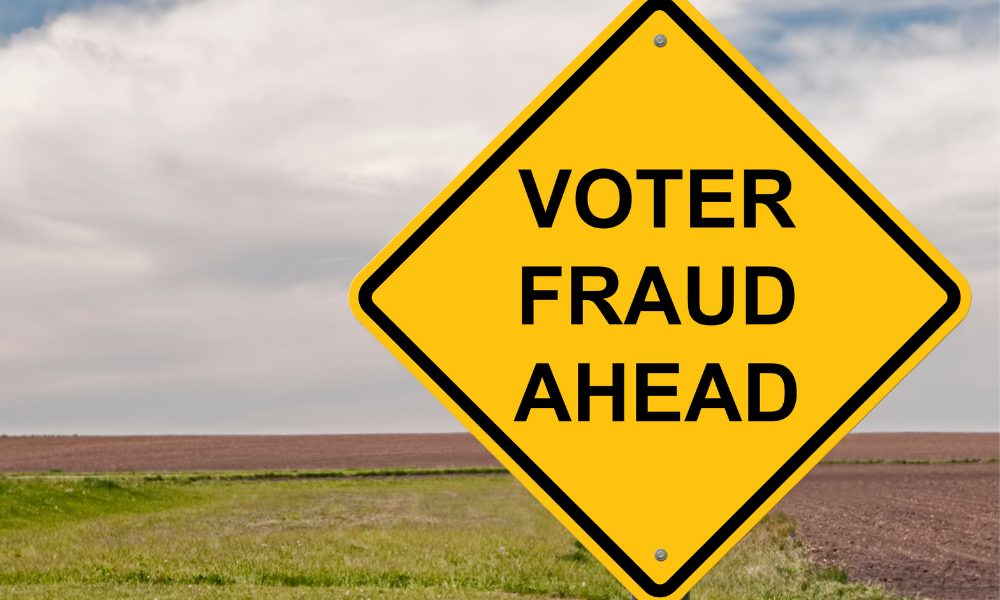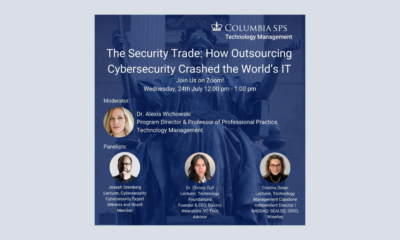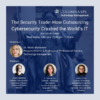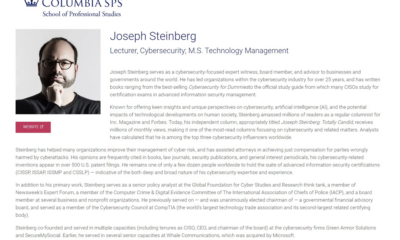The Most Dangerous Attack On Our Presidential Election Is The One That Nobody Is Discussing
Election hacking, tampering, vulnerabilities, and fraud are topics that have inundated Americans watching the news over the past year. In my column, Totally Candid, I have discussed various personal experiences with recent election-related problems – such as results from a May mail-in-ballot-election just a few miles from my home being thrown out by a judge due to massive fraud, my having received a ballot with the wrong Congressional election on it, and being required to mail my completed ballot in a see-through envelope that would not even seal properly – that raise significant questions about the integrity of today’s election.
While much of the recent focus has been on the spread of misinformation, that form of “tampering” seems relatively unlikely to yield a significant electoral impact in a polarized America in which fake news stories are more likely to invigorate people whose beliefs are already in-sync with the viewpoints expressed in the relevant pieces than to actually convince folks to change for whom they will ultimately cast their votes.
What concerns me much more than misinformation is the potential for fraudulent votes to actually be cast – for example, by people who “exist” only because they have been created by foreign agents tasked with developing personas over multi-year, or even multi-decade, periods of time. How difficult would it truly be for a foreign power with a huge budget to create and register bogus people as voters in a swing state – and how hard would it be now, during the COVID-19 pandemic, to cast those “folks’” ballots by mail? Does any rational person with knowledge of the relevant systems really believe that our diverse and decentralized election infrastructure is bulletproof – that it is impenetrable even by highly-trained intelligence agencies and armies of sophisticated cyberwarriors?
In 2000, Al Gore lost the Presidency by less than 600 votes cast in a single state (Florida) – how hard would it be, today, for a sophisticated foreign power such as China, Russia, or Iran, to add 600 “people” to voter registration databases and to subsequently cast 600 votes? On that note, is there anyone who can say with absolute certainty that a foreign power did not somehow manage to cast 600 votes in Florida in 2000? Even without attempts at fraud, we could easily see more than 600 illegitimate votes in each of many states – in my own home State of New Jersey, for example, in which ballots were mailed a month before the election, unsolicited, to over 6 million registered voters, it is likely that 600 or more people who cast mail-in ballots subsequently died before election day, and should not have their votes counted. (In this regard I am thankful that New Jersey is not a swing state.)
Of course, the most dangerous threats to election integrity are those that have not been discussed in any media reports; if some party did manage to cast fraudulent votes by exploiting some systemic vulnerability about which nobody else knows, the breach may never be discovered, and its impact never considered.
Once an election is over, and ballots have been counted, the same “secret ballot” rules that are essential to holding free elections also undermine efforts to perform forensic analysis; there is simply no way to know who cast which votes or to remove votes cast by parties who we subsequently learn were not entitled to vote.
FBI Director Wray remarked a couple weeks ago that “We’ve been working for years as a community to build resilience in our election infrastructure—and today that infrastructure remains resilient. You should be confident that your vote counts. Early, unverified claims to the contrary should be viewed with a healthy dose of skepticism.” While Director Wray may be seeking to assuage fears, the fact remains that we have seen verified claims of votes not being counted in an election earlier this year, and have seen irrefutable proof of severe problems with election management processes and infrastructure. Furthermore, our goal must be more than just to prevent hacking and fraud – we must ensure that our success in having done so is obvious, so that reasonable Americans as a whole believe that the election was conducted with integrity.
My hope, is, therefore, that whoever wins the Presidency now will do so with a large margin of Electoral votes, and with those votes won by large margins in their respective States. And, regardless of who wins, after this election is over, we, as a nation, must immediately take major steps to protect the integrity of our elections going forward. Let’s not wait until the summer of 2024, by which time it will be too late.
(Testing a security feature for credit card activation – הפעלת כרטיס כאל or הפעלת כרטיס אשראי – כאל – ויזה כאל )













 CyberSecurity for Dummies is now available at special discounted pricing on Amazon.
Give the gift of cybersecurity to a loved one.
CyberSecurity for Dummies is now available at special discounted pricing on Amazon.
Give the gift of cybersecurity to a loved one.